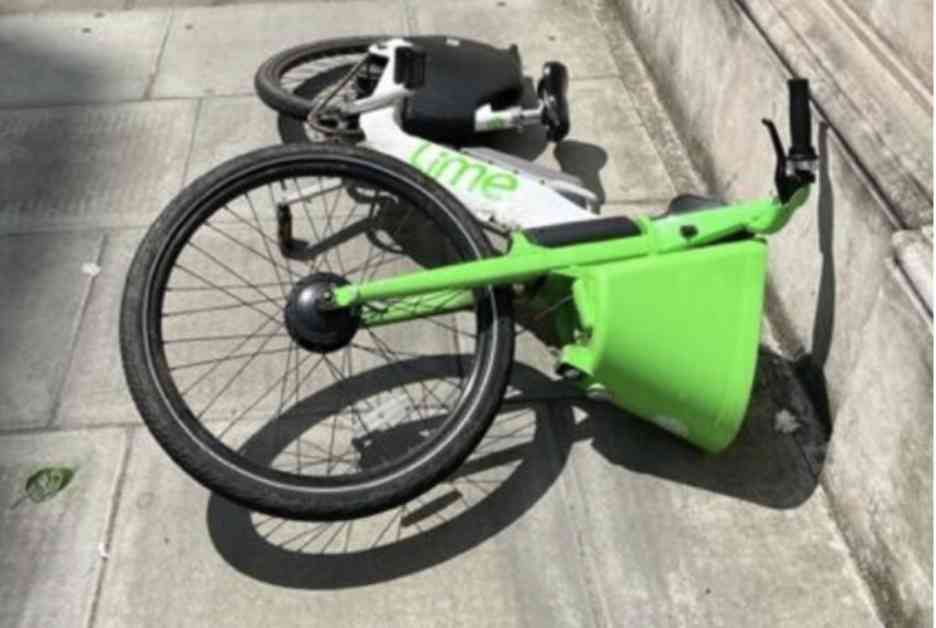Labour MP Urges Government to Regulate e-Bike Use to Curb Antisocial Behavior
Rachel Blake, the newly-elected MP for Cities of London & Westminster, has made a plea to the government for immediate assistance in addressing the growing issue of antisocial behavior related to the use of rented e-bikes and e-scooters. In a letter addressed to Simon Lightwood, the parliamentary under-secretary of state for transport, Blake emphasizes the urgent need for local authorities to be granted additional powers to regulate the misuse of these vehicles within their respective areas.
Antisocial Misuse of E-Bikes and E-Scooters
Blake highlights the prevalent problems associated with rented e-bikes and e-scooters, citing instances where these vehicles are irresponsibly parked, obstructing pavements and roads. This behavior poses significant hazards to pedestrians, especially those with mobility challenges. The MP stresses that such issues are particularly acute in busy urban areas like central London, where the influx of these vehicles has led to a surge in complaints from residents and concerns over public safety.
Calls for Enhanced Regulatory Powers
In her letter to Lightwood, Blake advocates for local authorities to be granted the authority to impose fines on riders who engage in hazardous parking practices and on companies that fail to address these safety concerns promptly. She argues that empowering local councils with the ability to enforce regulations will help mitigate the negative impact of e-bike and e-scooter misuse on urban communities.
Challenges with Current Regulatory Framework
While acknowledging the ongoing e-scooter trial conducted by Transport for London in several boroughs, Blake points out that the trial is not slated to conclude until 2026. Given the pressing nature of the issues at hand, she emphasizes the need for immediate regulatory action to address the problems arising from the use of these vehicles in urban settings. Private e-scooter use on public streets remains illegal, further complicating the regulatory landscape surrounding these modes of transportation.
Collaborative Efforts to Address the Issue
Blake underscores the importance of collaboration between stakeholders in tackling the challenges posed by e-bike and e-scooter misuse. She highlights her partnership with Westminster councillor Paul Dimoldenberg, who has been actively involved in the Labour-run council’s initiatives to address city management and air quality concerns. By working together with local authorities and community leaders, Blake aims to drive meaningful change and enhance the overall safety and sustainability of urban transportation systems.
Innovative Solutions and Pilot Programs
Westminster’s proactive approach to addressing e-bike misuse serves as a notable example of innovative solutions being implemented at the local level. The council’s decision to designate over 300 parking bays for e-bike hirers, in collaboration with suppliers like Lime, Tier, and Forest, showcases a commitment to finding practical solutions to parking challenges associated with these vehicles. By encouraging customers to utilize designated parking spaces, the council aims to minimize disruptions caused by improperly parked e-bikes and promote responsible usage among riders.
The Role of Legislation in Effective Regulation
Despite the progress made through voluntary agreements and pilot programs, the need for comprehensive legislation to regulate e-bike and e-scooter use remains a critical issue. The lack of clear legal frameworks has hindered efforts to effectively control the proliferation of these vehicles in urban environments. Blake reiterates the importance of granting local authorities the necessary powers to enforce regulations and penalize offenders, emphasizing the role of legislation as a key component in ensuring the responsible and sustainable use of e-bikes and e-scooters.
Future Outlook and Call to Action
As the debate surrounding e-bike and e-scooter regulation continues to evolve, there is a growing consensus on the need for proactive measures to address the challenges posed by these modes of transportation. Blake’s advocacy for enhanced regulatory powers reflects a broader push for legislative reforms that prioritize public safety and urban sustainability. By urging the government to take decisive action in empowering local authorities to regulate e-bike and e-scooter use, the MP underscores the importance of collaborative efforts in shaping the future of urban mobility.
Moving forward, it is essential for policymakers, community leaders, and industry stakeholders to work together towards establishing a comprehensive regulatory framework that balances innovation with responsibility. By addressing the root causes of antisocial behavior related to e-bike and e-scooter use, we can create safer and more inclusive urban environments that prioritize the well-being of all residents. Rachel Blake’s advocacy serves as a catalyst for change, inspiring collective action to reshape the landscape of urban transportation and pave the way for a more sustainable future.





















